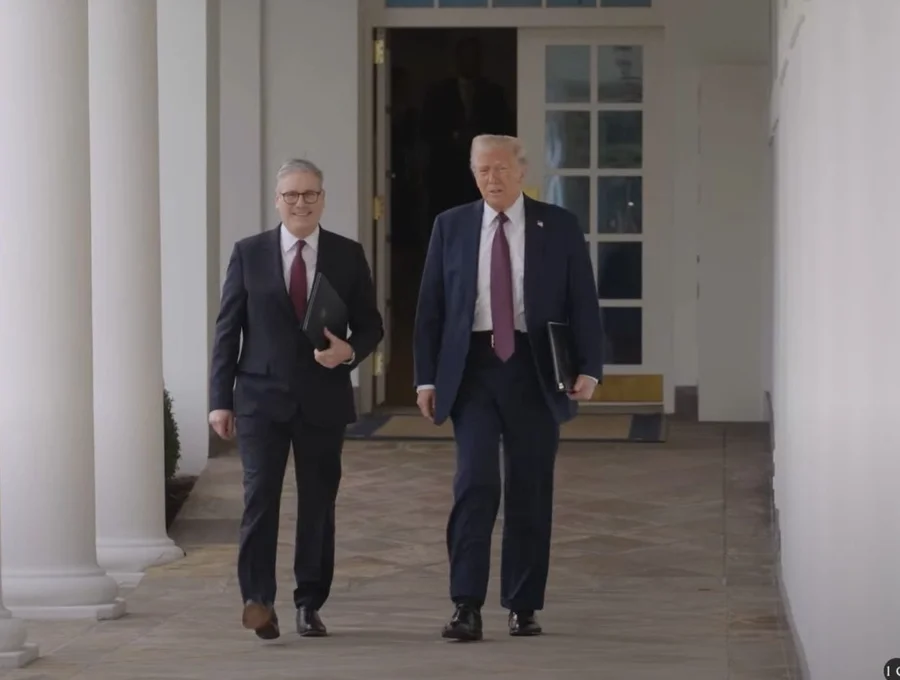Is the UK-US Trade Deal a Win for UK Supply Chains?

A fresh trade agreement between the UK and US slashes car, steel and ethanol tariffs, offering major benefits for farmers, manufacturers and exporters
In a move set to bring relief to strained supply chains and struggling industries, the UK and US have agreed a new trade deal that reduces tariffs on key goods, secures new agricultural access and creates clearer customs rules.
While the headline win for the UK lies in car manufacturing, two sectors set to gain substantially are agriculture and steel.
Before this agreement, the UK faced 25% tariffs on steel and aluminium entering the US. This pricing penalty threatened the viability of British steel exports and had placed thousands of jobs at risk. With today’s deal, those tariffs are cut to zero.
The UK Government now secures uninterrupted access to one of its most important export markets, while US buyers continue to receive specialist steel components.
Prime Minister Keir Starmer has faced growing pressure from industry leaders and unions over the health of the domestic steel sector. Last month, the government intervened directly to save British Steel, which employs thousands in Scunthorpe.
Now, with steel tariffs scrapped, the Prime Minister describes the outcome as “jobs saved, jobs won but not job done.”
This comes as part of a wider push to integrate the UK into what President Donald Trump calls “a big economic security blanket,” a term he used in the Oval Office while announcing the agreement.
The White House said the UK would gain preferential access in future tariff decisions under the US’s Section 232 national security framework, which previously hit British producers hard.
The agreement also introduces a new trading framework for steel and aluminium, which the US says will ensure secure supply chains and improve coordination across national industries.
The Prime Minister hailed the deal for “protecting thousands of British jobs in key sectors including car manufacturing and steel.”
Food and ethanol open up major US-UK agricultural exchange
On the agricultural front, the UK has agreed to open its market further to US food imports, including a tariff-free quota for 13,000 metric tonnes of high-quality beef.
These concessions follow strict UK red lines on food safety, with the PM confirming that “we had red lines on standards on agriculture and we kept to those red lines on areas like SPS [Sanitary and Phytosanitary Standards],” referring to food hygiene and safety rules.
The United States, in return, will slash tariffs on British agricultural exports and ethanol, which is used in both fuel and beer production. US ethanol entering the UK will now be tariff free, removing costs for British brewers and energy firms.
According to the White House, more than US$700m of American ethanol is expected to be exported to the UK, alongside US$250m of other agricultural products.
US Commerce Secretary Howard Lutnick said the agreement “opened up new market access, ethanol, beef machinery, all the agricultural products. They’ve agreed to open their markets. And that will add US$5bn dollars of opportunity to American exporters.”
The White House described the agricultural deal as one that “commits the countries to work together to enhance industrial and agricultural market access” and “ensures streamlined customs procedures for US exports.” That includes faster processing of goods through UK ports and airports – and a clear customs framework to replace previous red tape.
This simplified customs process will be particularly important to procurement departments that have been dealing with disrupted supply chains and shifting tariff regimes.
The UK Government’s aim has been to provide the certainty that businesses need to plan investment, place orders and avoid price shocks.
Global supply chain shifts and procurement pressures
The wider procurement landscape has been fraught since the US reintroduced sweeping in April, with a 90-day pause triggering global negotiations.
This deal is a first concrete resolution, giving businesses a working framework for transatlantic trade and helping sectors like aerospace and pharmaceuticals prepare for stability.
Crucially, the US has agreed to preferential UK treatment in future trade investigations, particularly around automotive imports. While the new deal sets a 10% tariff on the first 100,000 UK-built cars entering the US annually, any additional vehicles will still face the 25% rate.
Jaguar Land Rover alone expects to save hundreds of millions annually under this new framework.
Farmers and agricultural producers in both countries are expected to benefit, with the UK receiving expanded access to US beef, poultry and ethanol markets while protecting its own standards.
As Shevaun Haviland, Director General of the British Chambers of Commerce, said: “The reduction in the 25% tariffs on most of our automotive exports and the removal of levies on steel and aluminium are the biggest wins.
“These sectors had been left reeling as jobs, investment and sales were all cut or put on hold.”
With a UK-India deal earlier this week and further discussions with the US on pharmaceuticals and digital trade still to come, the government sees this as just the start.
A new UK-US technology partnership is already on the table, including areas like biotech, quantum computing and space.
Original Article – Is the UK-US Trade Deal a Win for Global Supply Chains? (supplychaindigital.com)

